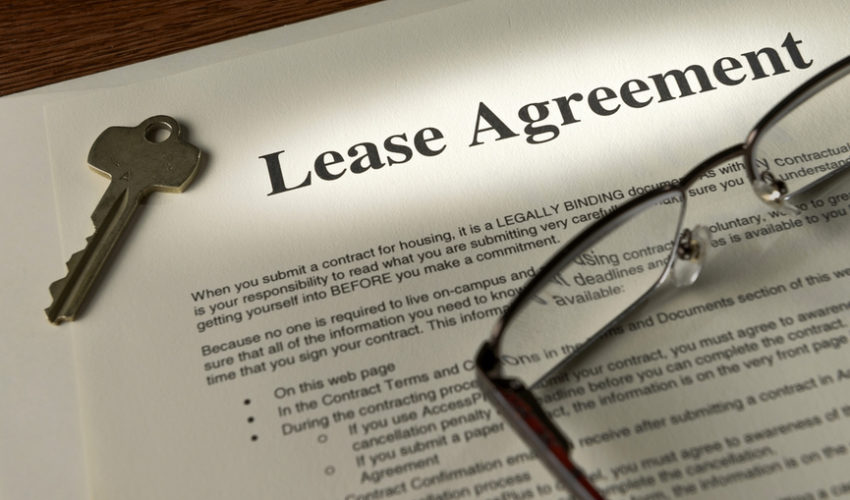Renting out a commercial property can be advantageous for both parties. Landlords have a property where costs are covered by the tenants and tenants get an affordable place from which to operate their business. In most instances, this arrangement functions as it was intended without any issues. However, there are times when the relationship between landlord and tenant can break down and cause disputes to arise. From rent arrears to anti-social behaviour, rent increases to repairs, disputes can arise for a number of different reasons.
Free Initial Telephone Discussion
For a free initial discussion on how we can advise you with commercial landlord disputes, get in touch with us today. We will review your situation and discuss the options open to you in a clear and approachable manner. Early expert legal assistance can help avoid the stress of dealing with these issues on your own. Simply call us on 0345 901 0445 or complete our online enquiry form and a member of the team will get back to you.
What are the common types of commercial tenancy disputes?
When a dispute happens between a tenant and a landlord, it is often a result of a clear or perceived breach of the tenancy agreement. A tenancy agreement is a written contract between the landlord and the tenant that details the rights of both parties in regards to the occupancy of a property. An agreement will include details as to the obligations of the landlord and of the tenant. The agreement also covers arrangements such as who has the right to occupy the property during the tenancy, how much rent a landlord is expected to receive from a tenant and how long the tenancy will last.
A tenancy agreement can be breached for a variety of reasons, of which the most common are as follows:
Rent Arrears
When a tenant fails to pay their landlord the agreed rental fee on time, it is known as rent arrears. There may be a number of reasons as to why the tenant has not made a payment, so it is best practice to notify the tenant and give them the chance to rectify it. However, if the tenant still doesn’t pay, the next step would be to send a formal letter outlining that they are in rent arrears and that you expect payment by a certain date. However, it is imperative to give careful consideration to the latest coronavirus regulations before embarking on any particular action.
Subletting
An increasingly prevalent problem is subletting. A sublet is when a tenant rents out a room within a property that they themselves have rented from their landlord. The sub-tenant has no legal relationship with you the owner/landlord and will pay their rent to the tenant. While not necessarily an illegal act in itself, subletting is something that can be a breach of the tenancy if the agreement expressly forbids any sublets.
Subletting can lead to complicated issues. For example, a sub-tenant may damage the property and the tenant is ill-prepared to remedy the issue with the landlord.
Dilapidations
In every commercial tenancy agreement, dilapidations outline which party is responsible for maintaining and repairing the property. Disputes surrounding dilapidations are common as most commercial tenants tend to make alterations that are unwanted by the landlord.
How to avoid commercial tenancy disputes
As with any kind of dispute, the aim from the outset should be to try to resolve matters amicably. The key points to consider to achieve this are:
- try and keep lines of communication open by avoiding being aggressive
- show empathy to the other side’s perspective
- try and listen to the other side
- remain open to all reasonable solutions.
Resolving landlord and tenant disputes
In the first instance, try and remain calm. While the situation is undoubtedly stressful, adding further stress to the situation by losing your temper is unlikely to help matters. If possible keep communicating with the other party. This can be face to face, via text message, email or letter. Be mindful though that written messages are not always construed in the way the writer intended, so keep them polite, clear and concise.
While resolving any dispute as quickly and amicably as possible will be your main aim, do bear in mind that this may not be possible. To help your case, should the matter escalate to legal proceedings, from the start keep an accurate log of any incidents, including dates, notes of what happened, and, if relevant, take photos
How We Can Help
Our team is well versed in dealing with all the various aspects of commercial property possession proceedings and landlord disputes and we are here to help in any way we can. We are able to explain clearly the legal issues and provide open, honest and professional advice.
How to Contact our Commercial Property Solicitors
It is important for you to be well informed about the issues and obstacles you are facing. However, expert legal support is crucial in terms of reducing risk, saving you money and ensuring you achieve a positive outcome.
To speak to our Commercial Property solicitors today, simply call us on 0345 901 0445, or allow a member of the team to get back to you by filling in our online enquiry form. We are well known across the country and can assist wherever you are based. We also have offices based in Cheshire and London.
Disclaimer: This article provides general information only and does not constitute legal advice on any individual circumstances.




Leave a Reply
You must be logged in to post a comment.